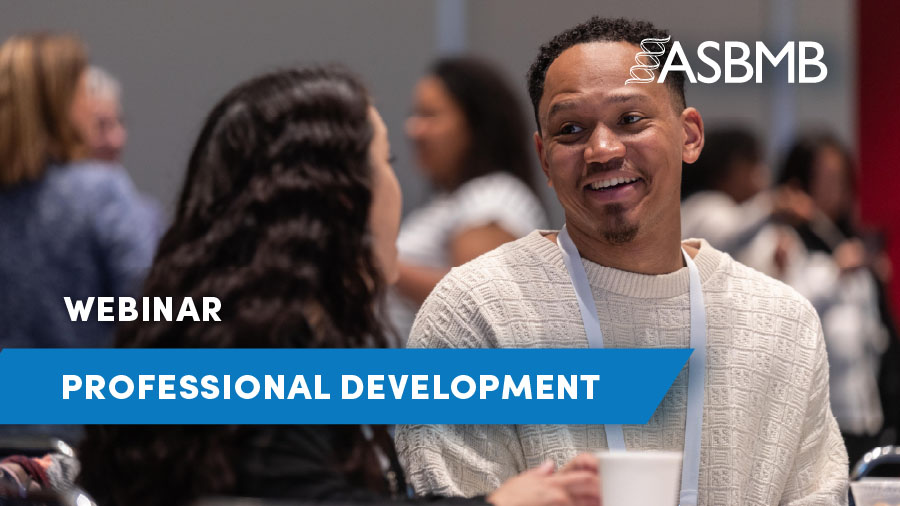Funding for Ph.D. students, postdocs and early-career researchers
To conduct biomedical research in academia, principal investigators usually need R01 grants from the National Institutes of Health. Anyone in a lab probably knows about these grants. But there are others out there that scientists can apply for before they are at the stage to apply for R01s. This week, I wanted to look into funding for which graduate students, postdoctoral researchers and early-career scientists are eligible. These are grants that can fund your training and set you up to get your first R01.
National Institutes of Health
The NIH is the major source of funding for academic research. The grants described below are awarded by the individual institutes that make up the NIH; they are not awarded by the NIH as a whole. (For example, the National Cancer Institute and the National Institute for Allergy and Infectious Diseases individually award grants.) Your work must align with the research priorities of the institute providing the funding.
The NIH designates different types of grants with letters. It has three main types for emerging researchers: T, F and K. It is worth noting that most of these grants have calls for proposals designated specifically for underrepresented minorities, so if you meet the NIH's URM criteria, it is definitely worth looking for opportunities with “to Promote Diversity” in the title.
T grants are training grants won by departments at academic institutions to fund the training of Ph.D. students and postdocs. To get on a training grant, usually a T32, you apply to your department, so you are competing only against your peers in your institution. If you manage to get on this sort of training grant, your salary/stipend is paid for by the grant, not your PI. Your PI still has to fund the research itself but doesn’t have to pay your salary.
For an institution to keep its training grant, it has to show the NIH that the graduate students and postdocs on the grant are making progress and having good outcomes. To this end, some institutions require training grant awardees to give presentations and/or complete individual development plans annually.
F fellowships are individual (not institutional) grants from NIH institutes that fund your mentored research and help you grow into an independent researcher. While the application involves proposing a well-defined research project, the research is not the only component of the application. Selection commitees for these awards take into consideration your potential for growth as well as things like how your PI mentors their students and what resources are available to you at your institution.
The F30 is for M.D.–Ph.D. students (or others pursuing clinician–researcher dual degrees), the F31 is for Ph.D. students and the F32 is for postdocs. Similar to the T32 described above, this funding is specifically for your stipend, not for your research. Your PI still has to acquire funding for the research materials and equipment. An example call for applications for the F31 can be found here.
Another big F award is the F99/K00 award. This is a transitional award for “outstanding graduate students.” The F99 portion of the award is funded while you're pursuing your Ph.D., and the K00 portion is funded during your postdoc, with the aim to “facilitate the smooth transition of doctoral graduates into competitive” postdoctoral positions. An example call for submissions can be found here.
K awards are career-development awards — for times in your career when you could use more training and protected time for research. These awards vary in their focus quite a bit, so, for the purposes of this post, I am highlighting only the ones that are most applicable to emerging researchers.
The big one is the K99/R00 Pathway to Independence award, which funds your transition from being a mentored postdoc (of four years or less) to being an independent, tenure-track PI. Similar to the F99/K00, the K99 portion of the award funds your final two years as postdoc, and the R00 funds kick in once you have started your new lab. This award can fund up to five years: two years as a postdoc and three as an independent faculty member. A big difference between these K awards and the F and T grants described above is that the K99 here funds your salary and research. Full details can be found here.
The NIH recently started the MOSAIC (Maximizing Opportunities for Scientific and Academic Independent Careers) program to support postdocs and early-career researchers from diverse backgrounds. The program has two components. Postdocs apply for the K99/R00 award. Organizations apply for UE5 funds to provide career-development opportunities and a supportive community for MOSAIC awardees. (The ASBMB recently signed a cooperative agreeement to run a MOSAIC program.)
The K01 Mentored Research Scientist Development Award is for an “intensive, supervised career development experience.” Different institutes tailor this award in different ways. For example, an institute might focus on scientists who are changing fields and need more training or focusing on those who have taken time off from research.
The K22 comes in two forms.
- The K22 Advanced Postdoctoral Career Transition Award is for researchers who have between two and five years of postdoctoral training. Phase 1 of the award will help you gain mentored training to become competitive for independent funding and a tenure-track position and eventually an R01. Once you get a tenure-track position, you get Phase 2 funding for up to three years. An example call for submissions with details can be found here.
- The K22 Career Transition Award funds three years of research as a new tenure-track, independent researcher. You apply to this when you are in a mentored research position (postdoc) and get the funding once you're hired in a tenure-track position. An example of this call for submissions can be found here.
The K43 Emerging Global Leader Award is for postdocs/residents and early-career faculty members in lower-income countries around the world.
National Science Foundation funding
Whereas the NIH funds health- and disease-related research, the NSF traditionally has filled the funding gap for basic science research, meaning research that is not directly applicable to health and disease.
NSF’s Graduate Research Fellowship Program, or GRFP, is generally for first-year grad students, but college seniors motivated to do research also can apply, and so can upper-level graduate students if they meet certain criteria, such as having taken time off from school.
This year the NSF announced that it is encouraging people who focus on artificial intelligence and quantum information science to apply. After some pushback by people pointing out that this emphasis may decrease the diversity of awardees as well as decrease the essential funding for basic biology, the agency clarified that researchers in all the traditional fields should still apply.
NSF's early-career grant is for assistant professors who are untenured and at educational institutions.
Enjoy reading ASBMB Today?
Become a member to receive the print edition four times a year and the digital edition monthly.
Learn moreFeatured jobs
from the ASBMB career center
Get the latest from ASBMB Today
Enter your email address, and we’ll send you a weekly email with recent articles, interviews and more.
Latest in Careers
Careers highlights or most popular articles

Defining JNKs: Targets for drug discovery
Roger Davis will receive the Bert and Natalie Vallee Award in Biomedical Science at the ASBMB Annual Meeting, March 7–10, just outside of Washington, D.C.

Upcoming opportunities
No matter where you are in your career and what future path you aspire to, everyone needs leadership skills. Join ASBMB for practical strategies for building and practicing leadership skills.

Close out ASBMB 2026 with a bang
The closing reception of the 2026 ASBMB Annual Meeting will be held at the Torpedo Factory Art Center in Alexandra, Virginia.

Redefining lipid biology from droplets to ferroptosis
James Olzmann will receive the ASBMB Avanti Award in Lipids at the ASBMB Annual Meeting, March 7–10, just outside of Washington, D.C.

Creating change in biochemistry education
Pamela Mertz will receive the ASBMB William C. Rose Award for Exemplary Contributions to Education at the ASBMB Annual Meeting, March 7-10 in Washington, D.C.

Trainee mentorship as immortality
Suzanne Barbour will receive the ASBMB Sustained Leadership Award at the ASBMB Annual Meeting, March 7-10 in Washington, D.C.

